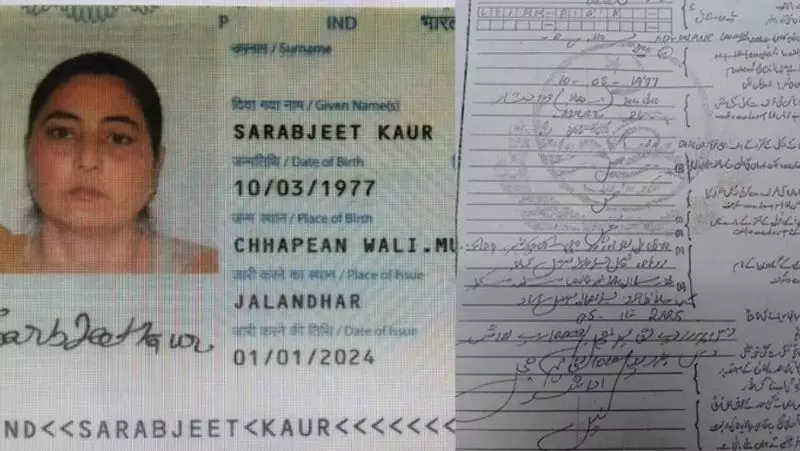
The case of Sarabjit Kaur, a 31-year-old Sikh woman from Punjab who disappeared during a religious pilgrimage to Pakistan, has taken a dramatic turn with revelations that she voluntarily converted to Islam and married a local man.
Disappearance During Religious Pilgrimage
Sarabjit Kaur was part of a 500-member jatha of Sikh pilgrims that traveled to Pakistan on June 20 to visit holy sites under a bilateral agreement between India and Pakistan. The pilgrimage was scheduled to conclude on July 10, but Sarabjit went missing under mysterious circumstances during the trip.
The woman was last seen at Gurdwara Panja Sahib in Hasan Abdal, one of the most significant Sikh shrines in Pakistan. Her disappearance triggered immediate concerns among fellow pilgrims and officials from both countries.
Shocking Revelation: Conversion and Marriage
Pakistan authorities have now confirmed that Sarabjit Kaur voluntarily embraced Islam and changed her name to Noor Hussain. More startlingly, she married a local Pakistani Muslim man named Muhammad Azam and expressed her desire to remain in Pakistan with her new husband.
The development came to light through official channels, with Pakistani officials stating that Sarabjit made these decisions of her own free will. They provided documentation showing her religious conversion and marriage certificate to support their claims.
Family's Anguish and Demands
Back in India, Sarabjit's family has expressed shock and disbelief at the official version of events. Her relatives have raised serious questions about the circumstances surrounding her disappearance and subsequent conversion.
The family has demanded concrete proof of her well-being and has questioned how a married woman with children could voluntarily abandon her family. They have appealed to the Indian government to intervene and ensure her safe return to India.
Diplomatic Implications and Ongoing Investigation
The case has significant diplomatic implications between India and Pakistan, both nuclear-armed neighbors with historically tense relations. The incident occurred under the framework of the Pakistan-India Protocol on Visits to Religious Shrines of 1974, which facilitates pilgrim exchanges between the two countries.
Indian authorities have taken up the matter with Pakistani officials through diplomatic channels. The External Affairs Ministry is closely monitoring the situation and seeking clarity on the circumstances that led to Sarabjit's conversion and marriage.
This incident raises serious questions about the safety and security of Indian pilgrims visiting religious sites in Pakistan. It also highlights the complex religious and political dynamics that often surround such cross-border visits between the two neighboring nations.
The case continues to develop as both governments attempt to navigate the sensitive religious and diplomatic dimensions of Sarabjit Kaur's unexpected transformation into Noor Hussain.





